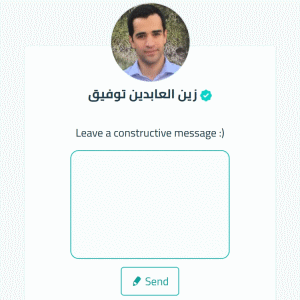Learn From History
Don’t let the excitement and enthusiasm of releasing your product prevent you from researching existing solutions and understanding why they failed or succeeded.
In the first days of Sarahah, there was a memorable day when I felt really depressed. My sister came to me and said that my idea already existed. To a person new in the field, the idea is like a treasure that needs to be hidden and protected. They might even mention an NDA (non-disclosure agreement) to make sure you won’t "steal" their idea.
I felt like I hit a wall... Moreover, the previous app’s name was “Honesty Box.” Sarahah literally translates to honesty. I even discovered other similar projects and started reading their stories. All of the discontinued platforms faced strong cyberbullying issues.
Indeed, I didn’t just move on; I started to think of ways to avoid these issues in the future. The first measure was to choose a calm, friendly theme and place a message telling users to leave constructive feedback. Simple or silly as these techniques sound, I’ve read about their success in preventing spammers—it perhaps touches people’s inner self.
However, this wasn’t enough. We continued to add many measures to protect our users, including reporting and filtration.

(Internet Archive)
Although many of the Sarahah stories you hear in the media are falsified, the negative sentiment around Sarahah made it easy for app stores to remove the app without facing pushback from consumers and media.
A good resource to learn about startup failures is Failory
Interestingly, in the early days of Sarahah, I was debating whether to limit its use to workplace feedback or open it to the public. I chose the latter. Thoroughly researching existing solutions (including a successful one for the workplace) supports the earlier direction.
By the way, many years after Sarahah, I decided to test out a professional version of the idea called OwlEars to hear from employees and customers.